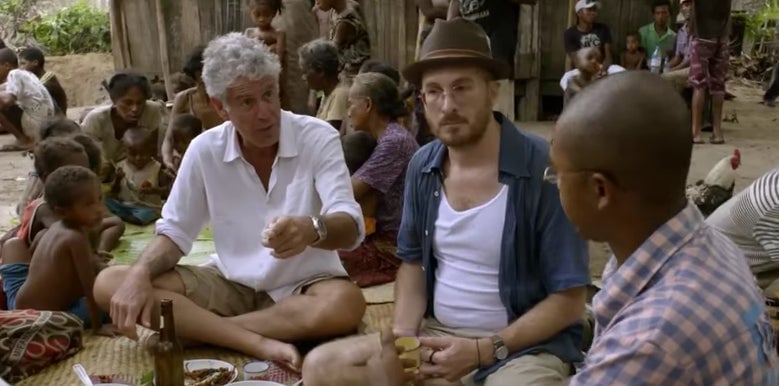Anthony Bourdain loved Africa’s many different foods and cultures
Anthony Bourdain was beloved around the world for his televised food adventures. For Africans, his celebration of local dishes was particularly meaningful.


Anthony Bourdain was beloved around the world for his televised food adventures. For Africans, his celebration of local dishes was particularly meaningful.
Over the course of his award-winning Parts Unknown travel show on CNN, the chef and bestselling author who died by suicide at 61 yesterday (June 8), filmed episodes in nine African countries, immersing himself in local cuisine and culture.
As he did wherever he went, Bourdain’s trips across Africa helped viewers connect with his local experiences in a way only he could: by making it so relatable. In a world where Africa has been subject of derogatory and stereotypical tropes for decades, Bourdain always managed to capture the essence of the places he visited, and their people, while being respectful of, and unpretentious about, their realities.
His willingness to try foods unknown or unusual for most viewers (an adventurous streak for which he was best known) was part of the rich serving that was each visit. In Johannesburg, he sampled futu, a popular cornmeal porridge, and roasted eland—the world’s largest antelope species. Zanzibar served up mandazi, Swahili donuts, and bhajias, lentil fritters. And while in Dakar, he opted for, among other things, thiéboudienne—Senegal’s national dish of rice and fish.
Bourdain never ate alone and often chose locals as his dinner companions, peppering them with questions. Their answers helped him and viewers understand local culture better. Tunji Andrews, a Lagos-based economist, was one of Bourdain’s meal dates last October when Parts Unknown visited Lagos. Sitting outside a Lagos buka—street-side canteens for local food—Andrews and Bourdain discussed the entrepreneurial spirit of Lagos, Africa’s largest city, and home to 21 million people. As always though, Bourdain was equally interested his meal—pounded yam and egusi, a popular local stew—and preferred to enjoy it how most locals would, Andrews says. “While I was being proper using cutlery, he washed his hands and dug in Naija style.”
Bourdain took viewers around the world to places he went, showing people’s humanity in a original and compelling way. In his shows, Africa wasn’t a stereotype, a place defined by conflict and poverty. Instead, it was defined by something refreshingly simple: good people, and good food.